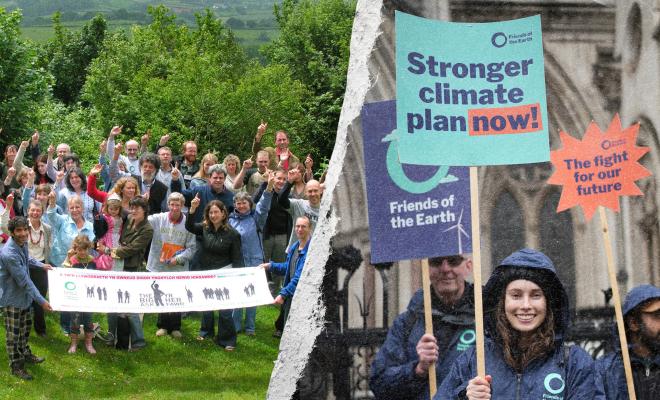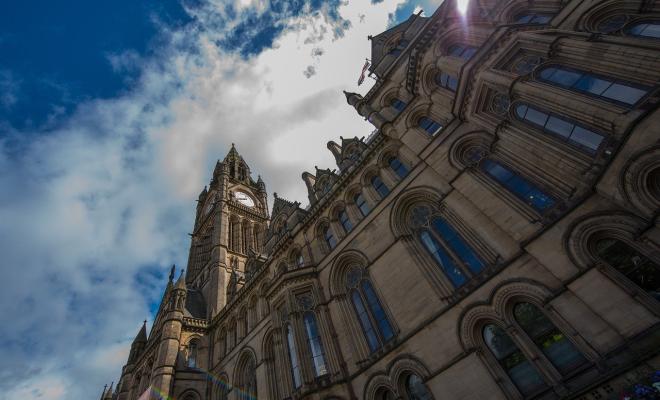03 Dec 2025
What's a regional mayor?
These mayors are the directly elected leaders of combined authorities. Combined authorities are made up of neighbouring local authorities. Some, like the West of England, are known as city regions and these leaders are often referred to as metro mayors, but some regional mayors will also cover rural areas like Greater Lincolnshire.
The Mayor of London is also a directly elected leader but of the Greater London Authority (GLA) rather than a combined authority. The local councils that make up the combined authority or GLA will co-operate on key areas, such as transport, planning and economic development, but these vary from area to area.
These mayors have important powers they can use to ensure their areas are tackling the climate and nature emergency. By taking action at this level, they can show national government where their communities’ priorities lie and what can be done to meet these priorities. They can also use their influence to secure more local powers and resources from national government.
Around a third of England’s territorial greenhouse gas emissions are produced in areas governed by combined authorities and the GLA. Mayors can’t single-handedly solve the nature and climate crisis, but they must use the powers they have to make as big a difference as possible.
There are 13 existing regional mayors in England: Cambridgeshire and Peterborough, the East Midlands, Greater Lincolnshire, Greater Manchester, Hull and East Yorkshire, Liverpool City Region, the North East, South Yorkshire, Tees Valley, the West Midlands, West of England, West Yorkshire, and York and North Yorkshire, plus the London Mayor.
In addition, the government has agreed devolution deals with individual county authorities without a directly elected mayor.
The origin and development of regional mayors
Many of the powers and responsibilities that these mayors and the Mayor of London now have were established through the Cities and Local Government Devolution Act 2016 and have been developing since then.
The previous Conservative government's devolution agenda aimed to address England's imbalanced economy. Plans were accelerated as part of its 2022 Levelling Up strategy, with a promise that by 2030 “every part of England that wants one” will have a devolution deal.
In addition to the new deals referred to above, which include county deals and more rural areas, the government is committed to deepening devolution in existing mayoral areas. So far, both Greater Manchester and the West Midlands are being granted additional powers and resources under new “Trailblazer” deals. In March 2024 the government also confirmed additional powers for South Yorkshire, West Yorkshire and Liverpool City Region.
The Labour government has committed to further devolution in England, establishing a new Council of the Nations and Regions as well as the requirement for combined authorities to develop Local Growth Plans.
In December 2024 the government produced its Devolution White Paper, which states the intention to create universal coverage of Mayoral Strategic Authorities and replace individual devolution deals with a legislative framework of powers for each level of devolution. Proposals in the White Paper also give more powers and control over spending to mayors – but more detail on these will emerge as the government publishes draft legislation.
Why are mayors important for climate and nature?
The devolution deals agreed between local leaders and national government vary from area to area, but generally they cover key sectors (see below) that are crucial for tackling the climate and nature crisis. In some of both the newer deals and the deeper Trailblazer deals, specific objectives are agreed on net zero and nature, and some deals even include specific net zero or “green growth” funding. Mayors therefore have unique powers to act on climate and nature.
Transport
Mayors are responsible for directing investment in transport infrastructure and developing Local Transport Plans. On the positive side, mayors can significantly improve public transport as well as walking and cycling infrastructure. Crucially, mayoral combined authorities have bus franchising powers, which means that mayors can decide which routes bus operators in their area are required to run, make fares more affordable and require the use of electric buses.
The Devolution White Paper states the government's intention to speed up the bus franchising process and to set out how mayors can manage and develop the rail network in their areas.
On the negative side, mayors can also enable road building schemes through a consolidated transport budget and control over the local road network.
Economic development
Mayors have a lot of influence over the economic development of their areas, the power to direct investment funds and the responsibility for developing Local Growth Plans. This provides an opportunity to encourage investment in climate solutions, including renewable energy infrastructure.
There are also potential opportunities to stimulate the growth of green jobs. Mayors have control over the adult education budget, a valuable tool in the potential reskilling of workforces to take up these new jobs.
Mayors should also take a stance against high-carbon infrastructure like airport expansions, as well as the use of any hydrogen other than “green hydrogen,” and only then for specific industrial purposes where there are no suitable alternatives.
Planning and housing
Some mayors also have powers under their devolution deals to produce spatial development strategies, working with constituent local authorities. These need to be in line with national policy, the National Planning Policy Framework (NPPF), but they can set out climate ambitions that Local Plans would then need to follow. Spatial development strategies will be required for all areas according to the Devolution White Paper.
Mayors can also use their influence to co-ordinate the retrofitting of existing homes. Their control over adult education budgets means they have a role in addressing skills gaps for insulation and heat pump installation in their areas. A key commitment in the new Trailblazer devolution deals is that from 2025 the government will pilot the devolution of net zero funding, including for buildings retrofit, through allocation rather than competition.
Nature
Most mayors will be responsible for drawing up Local Nature Recovery Strategies (LNRS) for their areas. They can work with stakeholders to develop and implement ambitious plans to protect and restore nature, significantly increase tree cover, and make sure everyone has access to nature-rich green space.
How mayors can help protect the most vulnerable
Tackling the climate, nature and cost-of-living crises must be done in a way that benefits everyone, no matter their income, race, age or background. It’s essential to address the sheer scale of inequalities that exist. People who are most marginalised, both here in the UK and across the world, have done the least to cause climate breakdown and are the least able to recover from its impacts.
People on lower incomes, and particularly people of colour, suffer most from the lack of nature and green space in our towns and cities. This is also true of air pollution, despite a smaller proportion of people from these communities owning cars. Young people’s futures are most at risk from climate breakdown and the decline of nature, and they’re also disproportionately impacted by the economic impact of the cost-of-living crisis. Yet too often their voices aren’t listened to in decision making.
Mayors can work to tackle inequalities and protect vulnerable communities. This includes ensuring the voices of those most impacted are heard and given centre-stage, prioritising climate and nature action where it's most needed, and making use of deliberative democracy approaches such as citizens’ assemblies.
Climate Action Plan for your area's mayor
We need mayors to take ambitious and urgent action on climate and nature, at the same time as responding to the cost-of-living crisis. To ensure a fair society for all, we need a just transition to a low-carbon, nature-rich, circular economy, and to unlock the green job opportunities this will bring.
We’ve created tailored Climate Action Plans for mayors, which use local data to highlight the urgent change needed, present a low-carbon vision for each area and, crucially, explain the practical actions needed to get there.
Find the Climate Action Plan for your combined authority below.




